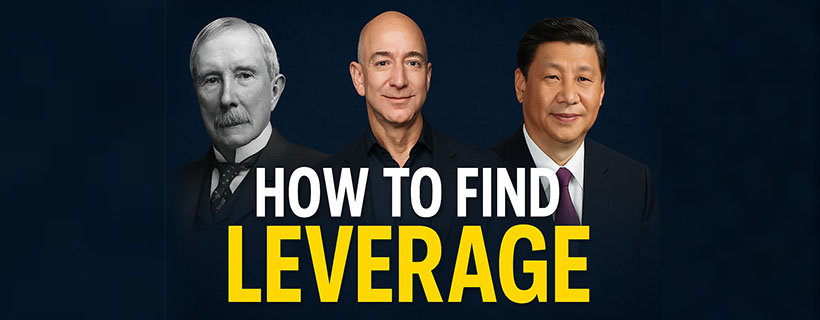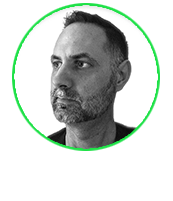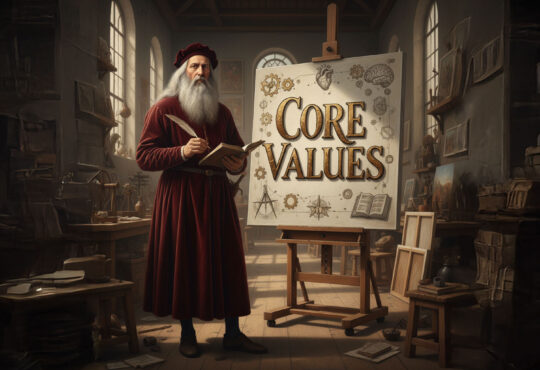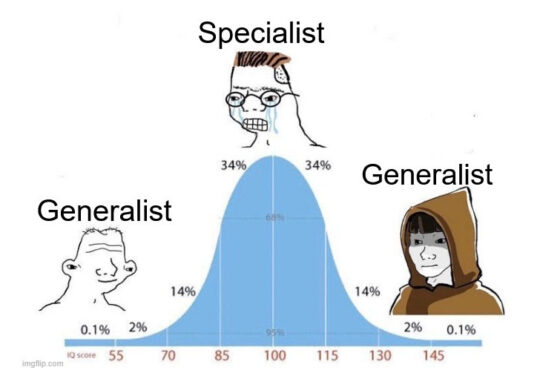
Thermodynamics of the Self: How to Focus Your Energy and Rebuild Your Life
You only have so much energy.
That’s the first law of your life.
Just like the First Law of Thermodynamics says that energy in a closed system is conserved, you (your mind, your body, your wallet) function as if you’re a closed system. Your usable energy is always finite at any given moment. That energy is your attention, your time, your dopamine, your capital.
But the real problem isn’t distractions. It’s not about conserving energy.
It’s about using that finite energy wisely, identifying the points where your focus has the most leverage. Most people don’t fail because they get distracted. They fail because they aim their focus at places with low or no return.
Your life is not just subject to thermodynamic decay. It’s governed by leverage.
Why This Matters
Let me tell you about how I learned this the hard way.
Years ago, I was obsessed with “doing everything right.” I’d wake up and meditate, journal, read five pages of a book on Stoicism, then watch videos on business strategy, then bounce over to Twitter to find content ideas. I’d sprinkle in some marketing podcasts, some dabbling in coding, a random newsletter idea.
By noon, my mind felt like a junk drawer. Lots of interesting pieces, zero working machine.
I told myself I was being “productive.” But I was really just aiming at everything…and hitting nothing.
The problem wasn’t that I lacked focus. It was that I hadn’t chosen a smart target for my focus.
It was only after studying how dominant players, whether nations, tycoons, or elite performers, operate that I realized the stark difference. They don’t just focus hard. They focus strategically. They look for leverage points, areas of the system where a small, well-placed effort can shift everything.
It’s like a magnifying glass. Sunlight is all around us, but it’s only when you concentrate that energy into a single point that it ignites something. It’s not just about focus, it’s about focus in the right place.
Take Rockefeller.
He didn’t try to be the king of coal, steel, railroads, and oil all at once. In fact, early on, he didn’t even try to dominate the entire oil industry. He picked refining. One slice of the value chain. He put all his energy, attention, and capital into refining, to make it ruthlessly efficient. He squeezed out every competitor in that one sector first. Only after consolidating power there did he branch out to pipelines, tank cars, marketing, until he controlled almost the entire oil ecosystem.
He also chose a strategic location (Cleveland — near water routes and key railroads). That gave him leverage to secretly negotiated kickbacks from rail companies, making it impossible for rivals to match his prices. It was a hidden edge. He made moves that gave him an advantage, but were hard to detect from the outside.
Now look at China.
They didn’t take on the whole world economy head-to-head in every sector from the start. They focused on manufacturing. For decades, they funneled national attention, policy, capital, and cheap labor into becoming the world’s factory. They systematically out-competed rivals, one industry at a time — textiles, then electronics, then advanced manufacturing. Once they’d hollowed out other countries’ capacity in those areas, they began expanding into tech, infrastructure, global finance.
But it wasn’t just strategy. It was subtle exploitation. China siphoned off capital from the global wealth that flowed into its borders and funneled it back into state-backed enterprises. This gave Chinese firms an advantage that was hard to detect, let alone combat. The system was rigged behind the curtain.
Bezos, too, had grand ambitions – an everything store. But he didn’t start there. He chose one category: books. A massive catalog, easy to warehouse, relatively uniform in pricing. By dominating just that niche online, he built customer trust, refined logistics, and laid the foundation for expansion. He funneled his energy through a narrow opening and broke through. And unlike calling it “Bezos’ Bookstore,” he chose a name – Amazon – that hinted at the long-term vision while keeping the initial strategy narrowly focused.
All three of them – Rockefeller, China, Bezos – focused on controlling the supply chain. Rockefeller controlled oil from extraction to the pump. China built entire ecosystems, from raw material to finished product. Bezos mastered logistics, from warehouses to doorstep delivery.
That control created leverage. It gave them pricing power, defensibility, and resilience. That’s what smart focus looks like – not just doing one thing, but choosing the one thing that multiplies every other thing.
You can apply the same principle in your life.
If you’re a creator, control not just the content but the distribution and the monetization. Don’t rely solely on platforms you don’t own. If you’re building a skill, own not just the technical ability but also the context — the audience, the market, the feedback loops.
Solution
I’ve tried to take this same approach in my own life.
At 49, I’m more conscious than ever that my energy is finite. If I want to build something meaningful (a body of work, a business, a family legacy), I can’t just focus hard. I have to focus smart.
So I’ve started structuring my days and decisions around a single strategic idea:
Funnel your finite energy into the point of greatest leverage – long enough to reorganize reality.
For me, that’s meant aligning my efforts with my core values: curiosity and helping myself and others live an optimal life. Once I got honest about what actually drives me, it became clear that the best use of my finite energy was starting this blog. It gives me a platform to explore meaningful ideas, help others grow, and sharpen my thinking. That alignment became my leverage. When your actions line up with what matters most to you, the friction disappears. You stop second-guessing. You stop scattering your attention. You start building momentum.
It means ignoring most opportunities — not because they’re distractions, but because they lack leverage. It means tolerating the discomfort of letting good ideas go, so I can go all in on the great ones.
Tradeoffs and Ethics
Of course, this strategy has tradeoffs.
By focusing your energy into one direction, you gain leverage…but you also increase your risk. You lose some adaptability. You put more eggs in fewer baskets. If you guess wrong, the cost is higher.
Books like Range by David Epstein and Antifragile by Nassim Taleb highlight the value of adaptability and exposure to randomness. They argue that diversification, breadth of experience, and a willingness to absorb shocks make systems and people more resilient. And they’re right — at the system level. But there’s a tension: what works in theory often clashes with what’s required in practice to build something significant.
The reality is, to build something dominant (a business, a skill, a movement) you often need to temporarily abandon breadth in favor of depth. You need focused energy, consistent inputs, and sustained effort in one direction. That doesn’t mean ignoring serendipity or avoiding pivots. It means understanding the sequence: depth first, then breadth.
And what happens when you aim your energy at the wrong target?
Just look at many Chinese companies today. After years of explosive growth, fueled by government backing and global demand, a huge number of firms are going bankrupt. Why? Because they misallocated their energy. They expanded too quickly into low-margin sectors, duplicated efforts, or relied too heavily on artificial advantages that didn’t last. The focus wasn’t wrong in principle – it was misdirected in practice. Even strategic focus becomes fragility when aimed poorly.
And what about the Rockefeller and China-style tactics? The hidden strategies and subtle exploitation? They worked… but at a cost.
- China now faces tariffs and geopolitical backlash.
- Rockefeller’s empire was broken up by antitrust laws.
- Both damaged their reputations.
Contrast that with Warren Buffett. He built his empire on trust. Because of his reputation, business owners want to sell to him. His strategy wasn’t just ethical, it was smart. A good reputation gave him long-term deal flow.
So yes, seek leverage. But do it with integrity. That’s a force multiplier in its own right.
Key Principles & Takeaways
- Finite Energy, Infinite Leverage – Your attention, time, and capital are limited. But if directed wisely, they can generate outsized results.
- Focus Isn’t Enough — Focus Smart – Like a magnifying glass, your energy only ignites when aimed at the right point.
- Pick Your Beachhead – Start narrow (books, refining, manufacturing), then expand from a position of strength.
- Control the Supply Chain – Own as much of the value stream as you can, whether in business, skill development, or content creation.
- Look for Hidden Advantages – Geography, capital flows, platform rules – Subtle edges make a huge difference.
- Beware of Ethical Drift – Exploitation can offer short-term gains but long-term costs. Reputation compounds.
- Tradeoffs Are Real – Strategic focus increases leverage but also risk. Adaptability is sacrificed. Know the bet you’re making.
Your life follows the laws of thermodynamics.
But if you find the right leverage point and apply sustained, smart energy, you can defy entropy and build something dominant.
Thanks for reading my stuff,
MJ




